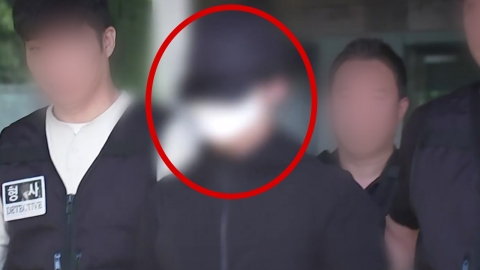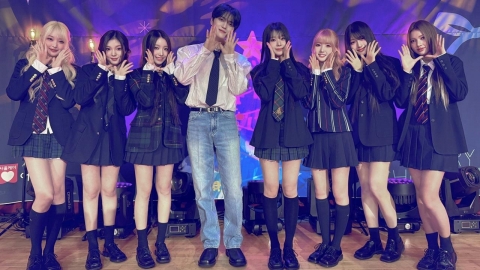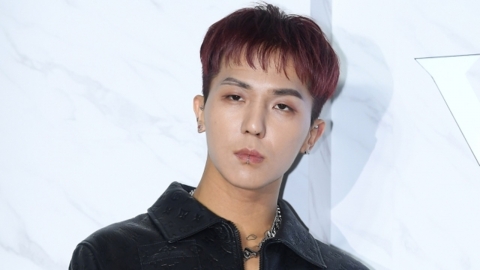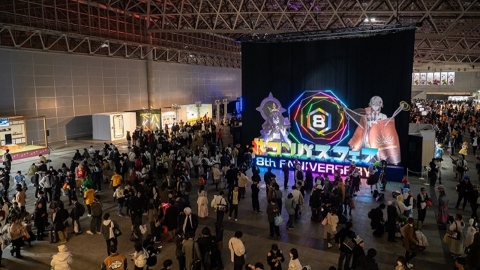■ Starring: Professor Chae Sang-mi, Department of Business Administration at Ewha Womans University
* The text below may differ from the actual broadcast content, so please check the broadcast for more accurate information. Please specify [YTN News START] when quoting.
[Anchor]
Start Economy, today with Chae Sang-mi, a professor of business administration at Ewha Womans University. Please come in. Today, we will first look at the news that Shinsegae Group Chairman Chung Yong-jin met with U.S. President-elect Trump, but there was an answer yesterday when he met with reporters when he returned home. Let's come in first and talk.
[Jung Yongjin / Shinsegae Group Chairman (Yesterday): As you all know, this business trip was made up of Trump Jr. invitation. Trump Jr. introduced a lot of people, so I had a long time to interact with a lot of people. I expressed my interest in the situation in Korea. I told them that Korea is a powerful country, so please believe and wait, we will quickly reach the top. ]
[Anchor]
Chairman Chung Yong-jin received a lot of attention when he met with President-elect Trump. There were a lot of reporters at the airport yesterday. It was done at the invitation of Trump Jr., and I think he said, "Trust me because the Republic of Korea is a powerful country," but it is true that there are concerns about a diplomatic vacuum because there is a vacuum between the Korean and U.S. governments of impeachment. Are you the first businessman to meet anyway?
[CHAE SANGMI]
That's right. Chairman Chung has been to the United States because Trump Jr. invited him. It is said that he stayed at Mar-a-Lago Resort, where Trump's home is located, for five nights and six days from the 16th and exchanged with local figures. Trump won the U.S. presidential election last month. Chairman Chung is known to be the only person in the political and business circles who have spoken directly with Trump since then. However, he did not elaborate on what kind of conversation he had with Trump after returning home. When the reporters asked that he seemed to have talked to the elected president for 10-15 minutes, he said he only shook his head. When asked about the topic of the conversation, he answered, "I can't tell you the details."
[Anchor]
Since we don't have a diplomatic communication channel, we're very curious about what happened.Ma said, "Chairman Chung Yong-jin can't reveal it now." It is a fact that Chairman Chung Yong-jin has long known that he has a relationship with Trump Jr., and since then, there have been expectations that Chairman Chung will serve as a private bridge between the next Trump administration. Chairman Chung was also reticent about this.
[CHAE SANGMI]
That's right. At the press conference when he returned home, he said he had high expectations that Chairman Chung would serve as a bridge to the private sector after the inauguration of the second Trump administration, but when reporters asked him questions, he said he didn't think about it that much. However, given that he answered that he was trying hard to work on his position from the perspective of the business, he was very reticent. Then, when asked about the impact of Trump's election on the Korean economy and businesses, he drew the line, saying, "I'm not in a position to tell you." In addition, there is an inauguration ceremony for the 47th president of the United States on the 20th. When asked if he had been invited, he replied, "I haven't been contacted in particular," and he said, "I'm willing to respond if a government mission is set up and I'm asked to attend," so it's very positive about serving as a civilian mission.
[Anchor]
In a way, there are a lot of questions that we're curious about, but I can feel that it's burdensome to talk less.
[CHAE SANGMI]
That's right. There is a role that the government should play and a role that the private sector should play, but it would be difficult to say what kind of role we will take when the political situation in Korea is still in a chaos.
[Anchor]
You just mentioned the government delegation, but I don't think it will be easy to organize it at a time when the members of the State Council are also under investigation.
[CHAE SANGMI]
That's right. All the government delegations are subject to investigation, so even if we officially set up a delegation, the U.S. government can't give us confidence because we don't know what the situation will be like in the future, so this will be a big problem.
[Anchor]
Is it easy for the private sector to take the lead in diplomacy under the Korean system?
[CHAE SANGMI]
The private sector can also play an active role in our country's system, but President-elect Trump has been very important in interacting with businessmen. So, it doesn't seem bad for Korea to take advantage of this time and actively interact with Trump. So, Chairman Chung is also known to be behind the scenes with Trump Jr., known as the next Trump administration's behind-the-scenes heavyweight, so there is definitely a positive point. I think it will be very helpful in the current domestic situation to actively utilize this to help the Korean economy.
[Anchor]
In the end, the government should conduct diplomacy with the United States, but as the situation in Korea is not good, expectations for private diplomacy seem to be rising. We had a relatively short conversation for 10 to 15 minutes, but the fact that we had a direct conversation with President-elect Trump is a testament to the unfortunate reality of our diplomacy, right?
[CHAE SANGMI]
That's right. First of all, if Trump talked about the Korean Peninsula and the Korean economy in the conversation, I think it will be of great help for Korea to develop diplomatic and trade strategies with the United States. But it's the result of leaning on a company-specific person. So, it can be interpreted as evidence that can show how unfortunate the reality of diplomacy in Korea is in this situation. Next, the leadership of the state administration is very empty right now. So, if nothing is done at this time, there is a possibility that the Trump administration will not matter to Korea, passing Korea, and these concerns will become a reality. Our national interests and security are closely related to the United States. So, it seems that it is time for the government to quickly reorganize the control tower in terms of economy and security so that this part is not damaged, and then to work together to expand the Korea-U.S. cooperation relationship with the public, the government, and the government.
[Anchor]
In fact, it's not that special for global entrepreneurs, the heads of the administration, and the heads of the state to meet. When we visit Korea, we meet with Chairman Lee Jae-yong and even when we go to Korea, we meet at the invitation of the president, but it is hopeful and bitter that these issues are highlighted.
It seems to be true that global companies have a great influence on Korean companies worldwide, so what should we do in the private sector?
[CHAE SANGMI]
It seems that this is not a unique trend in Korea, where companies are originally mobilized for the interests of the country or used to follow the interests of companies. Because in the United States, President-elect Trump was a businessman. And there are many expectations that Musk, an innovative entrepreneur, will be a symbol and actively implement business-friendly policies in the future. In the case of Japan, Softbank Chairman Son Jeong-ui visited Trump on behalf of the Japanese economy. President-elect Trump promised to invest 140 trillion won in our money. And it was also known that he treated Chairman Son Jeong-ui very sincerely. That's why Trump continues to meet with CEOs of major companies around the world at home. Korea is also in this situation because other global companies in Korea are known to expand their network with the president-elect and make good use of it, but it is very important for competitive entrepreneurs to actively advance and create networks to fill the diplomatic gap. I think it is very fortunate that Chairman Chung Yong-jin visited like this and made efforts to fill this gap. So, it is judged that it is helpful for the national interest to recover the Korean government's diplomatic capabilities quickly by taking this point.
[Anchor]
As the professor said, it will be important to restore our capabilities quickly, but aren't there many government-level approaches not only from global companies but also from other countries? So I think I'll feel a little more impatient.
[CHAE SANGMI]
That's right. The government is really going all out to build an active relationship with President-elect Trump and the next administration. The case of Japan is representative. Prime Minister Shinzo Abe died. However, even his ex-wife, Akie Abe, is engaged in a diplomatic war against Trump. As I said, I also met Son Jeong-ui, chairman of Softbank Group. Then, President Macron of France invited President-elect Trump to the reopening ceremony of Notre Dame Cathedral in Paris on the 7th. German Chancellor Olaf Scholz, who is set to hold an early general election in February next year, also spoke on the phone twice. In particular, Prime Minister Trudeau of Canada flew to Florida last month to meet with Trump to discuss tariffs. Israeli Prime Minister Benjamin Netanyahu sent his spouse Sarah Netanyahu to Florida on the 1st. In the case of Taiwan, Taiwan is also known to send a large delegation led by National Assembly Speaker Han Kuo-yu to Trump's inauguration. Korea currently has not only economic problems such as tariffs and subsidies for electric vehicles, but also defense costs. It is an important point in time when sharing negotiations and relations with North Korea are intertwined. It seems that the establishment of relations with the Trump administration is more urgent than any other country, and if we are judged like this and only we are alienated, the problem could really grow here, so it seems that a quick solution to the diplomatic vacuum with the U.S. should come out quickly.
[Anchor]
Now that I hear the rapid movements of each country, I can't help but think that Korea is also a few steps behind. What can we do or support at the government level?
[CHAE SANGMI]
As I said, the government needs to provide a lot of assistance from behind so that the private sector can go to the United States and play a role so that businessmen can network actively. As I said, we are in the midst of impeachment, but both parties need to work together to help us build a mission quickly. And then it seems that the ministers, especially the Ministry of Foreign Affairs, need to empower them to take preemptive action in these matters.
[Anchor]
More than ever, I feel that the agreement between the ruling and opposition parties is very important. In the meantime, before the inauguration of the second Trump administration, Samsung and SK Hynix semiconductor subsidies were confirmed. This part is a part where I can take a breather, right?
[CHAE SANGMI]
That's right. Samsung Electronics invested in the United States. Semiconductor law is in the United States. Therefore, subsidies of $4.745 billion and about KRW 6.9 trillion have been confirmed. In addition, SK Hynix has confirmed direct subsidies of up to $458 million and about 660 billion won. It's very fortunate news. The two companies are expected to lower their initial investment cost burden based on the subsidy decision. Samsung Electronics and SK Hynix's subsidy ratio to final investment is 12.7% and 11.8%, respectively, slightly higher than Taiwan's TSMC's 10.7%. Looking at this achievement, the semiconductor industry is judged to have received the best results after long negotiations with the US government and good results.
[Anchor]
It's a relief, but we can't relax here, can we? I think we should continue to come up with countermeasures against the next Trump administration.
[CHAE SANGMI]
If you look at the Semiconductor Act, it is a law that passed Congress with the broad support of both Republicans, Democrats, and both parties.
So even if the regime changes, it seems difficult to unilaterally destroy it. However, most of the actual subsidies are scheduled to be paid during the next president Trump's term. So, if the Trump administration makes the evaluation criteria and procedures for subsidies strict, it may remain a variable, so it is necessary to actively prepare for this. Next, President-elect Trump's very critical attitude toward the semiconductor law is also seen as a variable that Korean companies and the government should respond to in the future. Then, instead of directly giving subsidies to companies, Trump plans to impose high tariffs on semiconductors imported from abroad, making foreign companies produce semiconductors directly in the United States. Responding to these areas and actively resolving the uncertainty I mentioned remains a very important task.
[Anchor]
The Trump administration is skeptical about giving money directly to companies anyway, right? Looking at the movements of U.S. semiconductor companies in the private sector as well as now, is there a movement to take out key domestic personnel and excellent personnel anyway?
[CHAE SANGMI]
That's right. If you look at it, Micron in the United States is known to have conducted career interviews with domestic engineers including Samsung Electronics and SK Hynix in Pangyo, Gyeonggi-do over the past few weeks. The interview is known to be for hiring workers at Taiwan's Taichung plant. Analysts say this move is Micron's strategy to strengthen its competitiveness in artificial intelligence, high-bandwidth memory, and HBM, which are essential semiconductors for AI, to overcome poor performance. Korean companies also have to close the gap with Taiwan's TSMC, and at the same time, it seems to be a very difficult situation as we are concerned that the so-called triple-go sandwich situation, which has to deal with the U.S. company's counterattack, could be prolonged. Korea is at a very important point in the high-tech industrial conduction industry, especially AI, so we must see the game here. It is an important time for the government to actively cooperate and for companies to strengthen their competitiveness. There are many such evaluations.
[Anchor]
There should be a faster movement before it's delayed and it's too much to respond. Lastly, let's look at the New York Stock Exchange. Prospects are mixed over whether the Santa Rally will take place this week.
[CHAE SANGMI]
That's right. If you look at it, December 25th is closed. It's only until 1 o'clock on the 24th and closes early, but Fed made a policy announcement last week. The stock market has fluctuated greatly, which has stabilized consumer sentiment. Because the PCE index was released, it was up 2.4% year-on-year, which is about 0.1% lower than experts expected. So, concerns about inflation itself have been slightly lowered. Then, the PCR core growth rate also rose 2.8% year-on-year, so if you compare the two, it's a price stabilization signal.
So risk preference and investor sentiment have recovered. So, isn't there a chance that Santa Rally will continue? However, the important thing is that Fed's policy aftermath, which is, it sent a hawkish signal, so it can cause volatility, so you should be careful when investing in it.
[Anchor]
There are so many stories that it has become a shelf-life, so we have to keep watching the uncertainty. I see. So far, I've looked at the issue with Chae Sang-mi, a professor of business administration at Ewha Womans University. Thank you for talking today.
※ 'Your report becomes news'
[Kakao Talk] YTN Search and Add Channel
[Phone] 02-398-8585
[Mail] social@ytn. co. kr
[Copyright holder (c) YTN Unauthorized reproduction, redistribution and use of AI data prohibited]
Economy
More- 62% points for accruals, short expiration date of 1-3 years...insufficient advance guidance
- "Shippers and shipping companies 74% increase maritime fares next year or maintain status quo"
- How to choose the best strawberry this winter? Remember "Episode 1".
- "Supply policy, damage if it's soft..."The first new city and green belt will be carried out consistently in the wake of the change of government."

![[Weather] - 10℃. Extreme cold...What's the weather for Christmas this year?](https://image.ytn.co.kr/general/jpg/2024/1223/202412231102449947_h.jpg)







